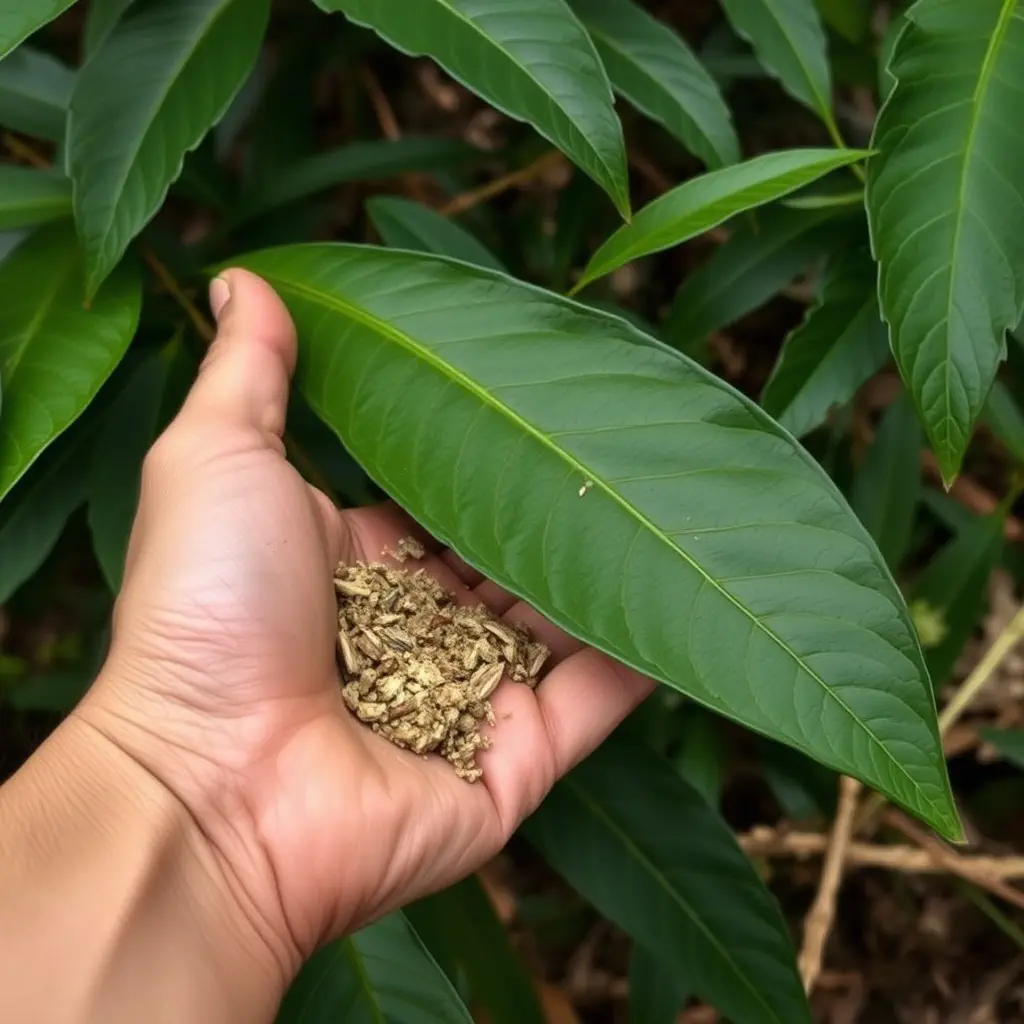Kratom, a supplement derived from Mitragyna speciosa, is being explored for its potential benefits in supporting individuals with fibromyalgia, particularly regarding improved sleep quality and duration. Its active alkaloids, mitragynine and 7-hydroxymitragynine, may interact with brain opioid receptors to provide sedative effects that can help manage the sleep disturbances common in fibromyalgia. Users report that kratom can aid in falling asleep faster and maintaining restful sleep throughout the night, which is crucial for fibromyalgia patients who often experience chronic pain and fatigue. While kratom shows promise, it's essential for individuals to consult healthcare providers before use due to potential side effects and interactions with other medications. Ongoing research aims to elucidate the mechanisms by which kratom can improve sleep in fibromyalgia patients, potentially offering a new treatment option that could enhance overall quality of life by addressing both pain and sleep issues.
Exploring the intersection of natural remedies and health, this article delves into the promising effects of Kratom for fibromyalgia support, with a particular focus on its role in enhancing sleep quality and duration. We will uncover how Kratom can be harnessed to manage symptoms associated with fibromyalgia, offering valuable insights into the science behind its impact on sleep. Join us as we navigate this intriguing realm of plant-based interventions for better rest and improved overall well-being in those living with this condition.
- Harnessing Kratom's Potential: Enhancing Sleep in Fibromyalgia
- Understanding Kratom's Role in Managing Fibromyalgia Symptoms and Its Impact on Sleep
- Navigating the Science Behind Kratom for Improved Sleep Quality in Those with Fibromyalgia
Harnessing Kratom's Potential: Enhancing Sleep in Fibromyalgia

Kratom, a plant native to Southeast Asia, has garnered attention in various health discussions, particularly for its potential role in supporting individuals with fibromyalgia. One of the most significant benefits reported by users is its impact on sleep quality and duration. The alkaloids present in kratom, such as mitragynine and 7-hydroxymitragynine, may help modulate the neurotransmitters involved in regulating sleep. For those suffering from fibromyalgia, chronic pain and fatigue can significantly disrupt sleep patterns. Kratom for fibromyalgia support is often sought as a natural alternative to manage these symptoms. Users have reported that certain strains of kratom can induce relaxation and reduce the time it takes to fall asleep, while others can enhance the quality of sleep throughout the night without the adverse side effects commonly associated with pharmaceutical sleep aids. It’s important for individuals considering kratom for fibromyalgia support to consult healthcare professionals, as dosing and strain selection are crucial factors that can influence its efficacy and safety. Additionally, ongoing research aims to elucidate the mechanisms by which kratom may benefit sleep in those with fibromyalgia, potentially offering a new avenue for treatment and improved quality of life.
Understanding Kratom's Role in Managing Fibromyalgia Symptoms and Its Impact on Sleep

Mitragyna speciosa, commonly known as kratom, has garnered attention in the realm of alternative treatments for managing symptoms associated with chronic conditions such as fibromyalgia. Kratom for fibromyalgia support is a topic of increasing interest among those seeking relief from the pervasive pain and fatigue that characterize this syndrome. The alkaloids found in kratom leaves, namely mitragynine and 7-hydroxymitragynine, are believed to interact with opioid receptors in the brain, potentially providing analgesic effects that can help alleviate the chronic pain often experienced by individuals with fibromyalgia.
Furthermore, the impact of kratom on sleep quality and duration is an area of growing research. Patients with fibromyalgia frequently struggle with sleep disturbances, which can exacerbate pain and other symptoms. Kratom for fibromyalgia support may not only address pain but also promote more restful sleep patterns. The sedative properties of certain kratom strains can help individuals fall asleep faster and maintain sleep throughout the night, leading to improved overall sleep quality. This can create a positive feedback loop where better sleep contributes to reduced pain and improved mood, further supporting the individual’s well-being and daily functioning. As with any treatment, it is crucial to consult healthcare professionals before incorporating kratom into a fibromyalgia management plan, ensuring safe and effective use for the best possible outcomes.
Navigating the Science Behind Kratom for Improved Sleep Quality in Those with Fibromyalgia

Research indicates that kratom, a botanical derived from the leaves of Mitragyna speciosa, may offer support for individuals with fibromyalgia, particularly in improving sleep quality and duration. The alkaloids present in kratom, such as mitraphylline and 7-hydroxmitragynine, are thought to interact with the brain’s opioid receptors, which can lead to sedative effects that facilitate sleep. For those suffering from fibromyalgia, chronic pain and fatigue often disrupt the normal sleep cycle, making restful sleep a challenge. Kratom for fibromyalgia support is thus not only about pain management but also about enhancing sleep patterns. Clinical studies have shown that participants who used kratom reported better sleep quality, with less time spent awake during the night and fewer instances of disrupted sleep. This improved sleep can be critical for individuals with fibromyalgia, as it contributes to overall well-being and can help alleviate the widespread pain associated with the condition. However, it is crucial for those considering kratom as a sleep aid to consult healthcare professionals to ensure safe and effective use, given the potential for side effects and interactions with other medications.
Kratom’s potential as a natural aid for improving sleep quality and duration, particularly in individuals with fibromyalgia, has been thoroughly examined. The article elucidates how Kratom, when used responsibly, can offer support by mitigating symptoms associated with the condition. Research indicates that certain Kratom strains may facilitate restful sleep, which is crucial for overall well-being. While further studies are warranted to fully understand its effects and optimal dosage, Kratom for fibromyalgia support represents a promising avenue for those seeking alternative solutions to enhance their sleep. Patients with fibromyalgia should consult healthcare providers before integrating Kratom into their treatment regimen to ensure safe and effective use.






